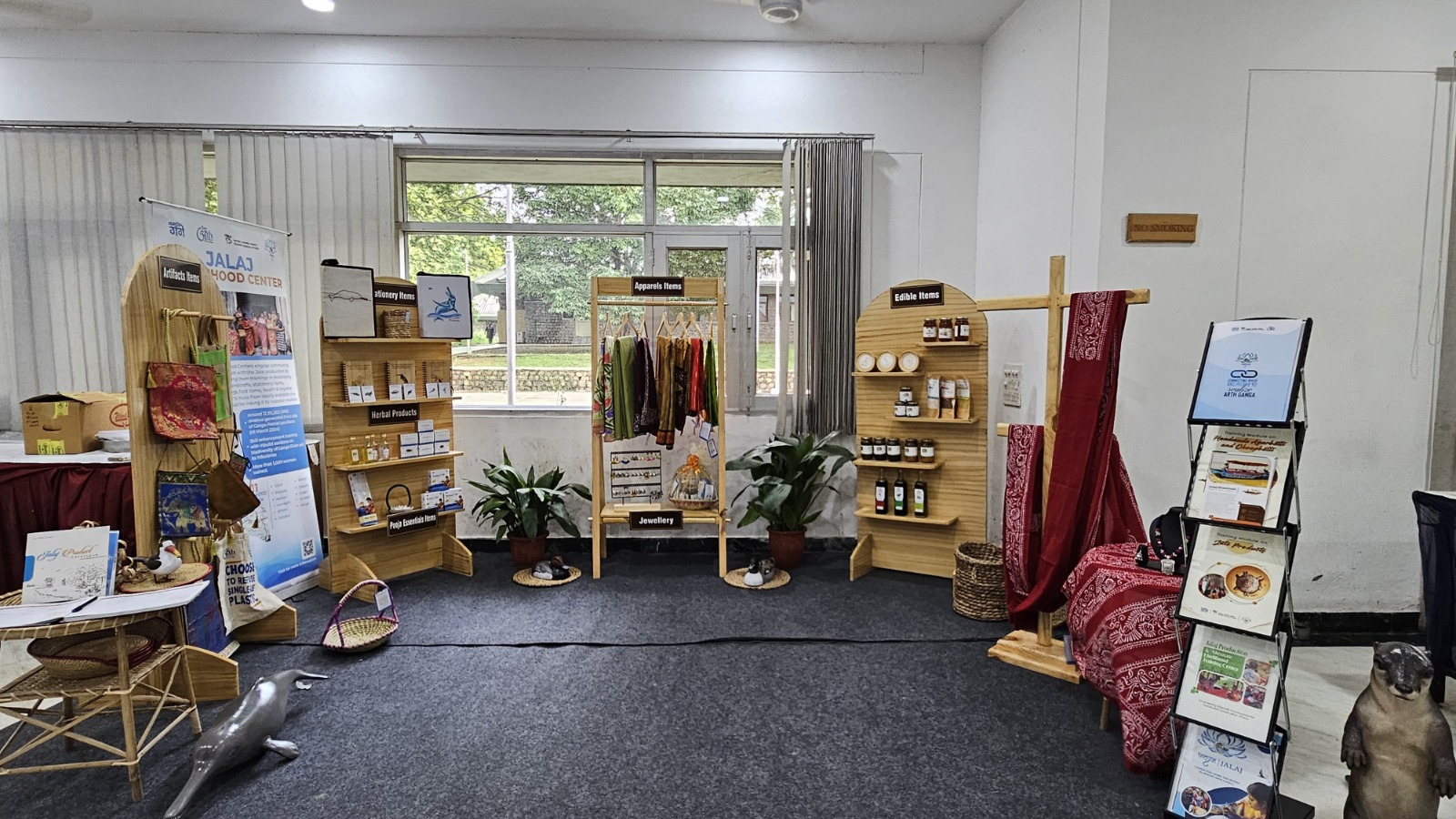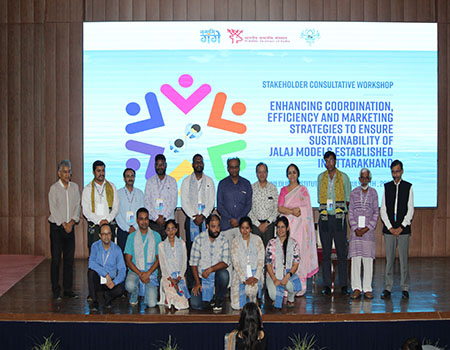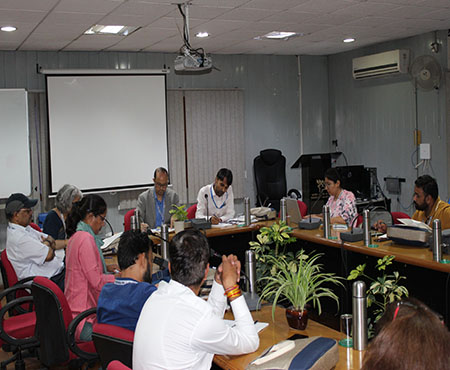Workshop Focuses on Boosting Sustainability for Uttarakhand's Jalaj Models
Dehradun : Today, a stakeholder consultative workshop was held at the Wildlife Institute of India, aiming to enhance coordination, efficiency, and marketing strategies for the sustainability of Jalaj Models in Uttarakhand.
Participants included representatives from 56 governmental departments, civil societies, private firms, and startups across Uttarakhand.
The event kicked off with an inaugural session featuring prominent figures such as Shri G Asok Kumar, former DG of the National Mission for Clean Ganga, Shri Ranjan Kumar Mishra IFS, PCCF and Nodal Officer, Land Survey Directorate, Forest Department, Govt. of Uttarakhand, Dr. Ruchi Badola, Dean and Principal Investigator of the Jalaj Project, and Dr. S.A. Hussain, retired Scientist-G and Programme Manager of the NMCG-WII project. 
Notable attendees were the "Seed Man of Uttarakhand" Shri Vijay Jarhdhari, and various organizations such as the Uttarakhand State Forest Department, UNDP, Uttarakhand Rural Livelihood Mission, HESCO, NYKS, SPMG, Uttarakhand Tourism Department, WWF-India, IIM Kashipur, GMVN, Department of Horticulture, UPES, and more.
Shri G Asok Kumar opened the session by emphasizing the importance of community involvement, saying, "To achieve sustainable development, it is crucial that we engage local communities and stakeholders in the process."
Shri Ranjan Kumar Mishra highlighted the need for effective land management, stating, "Our efforts must focus on efficient land use and conservation to maintain ecological balance and support livelihoods."
Dr. Ruchi Badola discussed the project's objectives, noting, "The Jalaj Project aims to create sustainable livelihoods through conservation efforts, and today's workshop is a step towards achieving that goal by fostering collaboration among diverse stakeholders."
Dr. S.A. Hussain shared his insights on the progress made so far, mentioning, "The success of the Jalaj Models depends on our collective efforts to innovate and implement effective solutions for the challenges we face."
The workshop featured five parallel sessions focused on different Jalaj models: Homestay, Awareness and Sale Points, Safari, Health and Wellness Centers, and Livelihood Centers.
These sessions provided a platform for brainstorming solutions to key issues related to each model and exploring opportunities for collaboration and integration under the Jalaj project.
Shri Vijay Jarhdhari, known as the "Seed Man of Uttarakhand," stressed the importance of traditional knowledge, saying, "We must integrate traditional practices with modern techniques to ensure the sustainability of our efforts."
The group presentations, chaired by Shri G Asok Kumar and Shri Jaghmohan Gupta, Advisor NMCG, highlighted the discussions and proposed interventions. Shri Jaghmohan Gupta emphasized the role of innovation, stating, "Innovative approaches are essential to address the unique challenges faced by the Jalaj Models and to create lasting impact."
Dr. Ruchi Badola concluded the event, expressing satisfaction with the successful engagement of diverse stakeholders and emphasizing the potential for alliances.
She remarked, "Today's workshop has shown that by working together, we can create sustainable conservation-based livelihoods and ensure the long-term success of the Jalaj Project."








